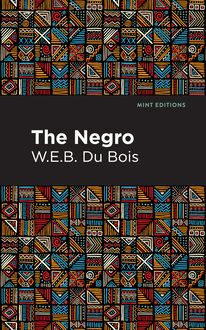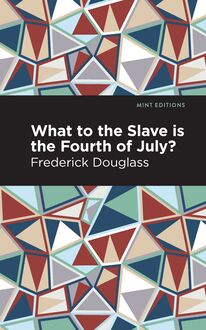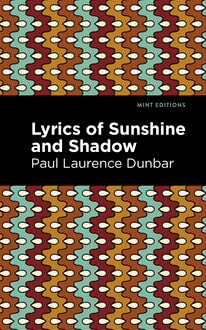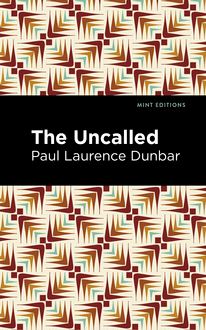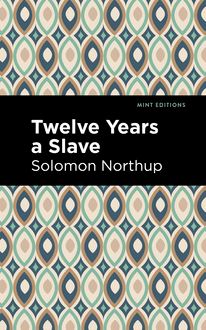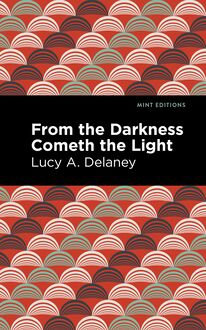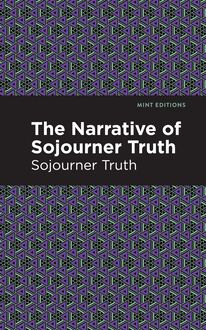-
 Univers
Univers
-
 Ebooks
Ebooks
-
 Livres audio
Livres audio
-
 Presse
Presse
-
 Podcasts
Podcasts
-
 BD
BD
-
 Documents
Documents
-
- Cours
- Révisions
- Ressources pédagogiques
- Sciences de l’éducation
- Manuels scolaires
- Langues
- Travaux de classe
- Annales de BEP
- Etudes supérieures
- Maternelle et primaire
- Fiches de lecture
- Orientation scolaire
- Méthodologie
- Corrigés de devoir
- Annales d’examens et concours
- Annales du bac
- Annales du brevet
- Rapports de stage
La lecture à portée de main
Vous pourrez modifier la taille du texte de cet ouvrage
Découvre YouScribe en t'inscrivant gratuitement
Je m'inscrisDécouvre YouScribe en t'inscrivant gratuitement
Je m'inscrisEn savoir plus
Vous pourrez modifier la taille du texte de cet ouvrage
En savoir plus

Description
Unfettered: A Novel (1902) is a novel by Sutton E. Griggs. Sutton’s third novel is a story of violence and forced migration that explores and critiques the politics of liberalism and assimilation in twentieth century America. Although Griggs’ novels were largely forgotten by the mid-twentieth century, scholars have recently sought to emphasize his role as an activist and author involved with the movement for Black nationalism in the United States. Critics since have recognized Griggs as a pioneering political figure and author whose utopian themes and engagement with contemporary crises constitute some of the era’s most radical literary efforts by an African American writer. When Lemuel Dalton takes control of his father’s estate, he sets out to make a show of force against Samuel, an ex-slave who oversees the Dalton family farm. When a fight breaks out between Lemuel and Harry, Samuel’s son, he shoots the young Black man in cold blood, gravely wounding him. As the threat of an imminent race war increases tensions in the rural Southern community, a group of white men takes advantage of the unrest to lynch and kill Beulah, Samuel’s defiant daughter. When it becomes clear that the state is determined to protect the interests of those in power, the Black community flees en masse to the city. Newlyweds Morlene and Harry—who survived his encounter with Lemuel—set out in search of safety, settling down to start their lives anew. But when Morlene meets Dorlan, a local activist, she begins to have doubts about her marriage. Engaged with some of the leading social issues of its era—American imperialism, lynching, and the movement for economic self-determination in the Black community—Unfettered is a brilliant novel from an underrecognized talent of twentieth century literature. With a beautifully designed cover and professionally typeset manuscript, this edition of Sutton E Griggs’ Unfettered: A Novel is a classic work of African American literature reimagined for modern readers.
Sujets
Informations
| Publié par | Mint Editions |
| Date de parution | 08 juin 2021 |
| Nombre de lectures | 0 |
| EAN13 | 9781513298313 |
| Langue | English |
Informations légales : prix de location à la page 0,0500€. Cette information est donnée uniquement à titre indicatif conformément à la législation en vigueur.
Extrait
Unfettered
A Novel
Sutton E. Griggs
Unfettered was first published in 1901.
This edition published by Mint Editions 2021.
ISBN 9781513296814 | E-ISBN 9781513298313
Published by Mint Editions®
minteditionbooks.com
Publishing Director: Jennifer Newens
Design & Production: Rachel Lopez Metzger
Project Manager: Micaela Clark
Typesetting: Westchester Publishing Services
C ONTENTS A UTHOR ’ S P REFACE I. A N A NGLO -S AXON ’ S D EATH II. “A N EW K ING … W HICH K NEW N OT J OSEPH ” III. A F ALLEN M AN S HOOTS IV. T HE C LANS G ATHER V. B REEDS T ROUBLE FOR A FTER Y EARS VI. A N A CT OF W HICH N OBODY IS P ROUD VII. A M AN A GAINST A R EGIMENT VIII. T HE H INT NOT T AKEN IX. D ORLAN W ARTHELL X. C UPID S HOULD B E M ORE C AREFUL XI. A S TORMY I NTERVIEW XII. M ORLENE AND D ORLAN XIII. A W HOLE C ITY S TIRRED XIV. B LOODWORTH AT W ORK XV. H ARRY B ECOMES A T OOL XVI. A W OMAN A ROUSED XVII. C LANDESTINELY , Y ET IN H ONOR XVIII. W HO W INS ? XIX. T HE S CENE S HIFTS XX. T HE B YSTANDERS C HEER XXI. T O B EGIN L IFE A NEW , A S IT W ERE XXII. E XCUSABLE R UDENESS XXIII. A S TREET P ARADE XXIV. G OING F ORTH TO U NFETTER XXV. T ONY M ARSHALL XXVI. A M ORNING R IDE XXVII. T HEY F EAR E ACH O THER XXVIII. “O D EATH , W HERE IS T HY S TING ?” XXIX. I N THE B ALANCES XXX. T HE T ELEGRAM D ORLAN ’ S P LAN F OREWORD D ORLAN ’ S P LAN Where the Trouble Arises Our Problem The Inspiration of the Opposition Still in the Balances He Who Has Hitherto Followed Called Upon to Lead Revisiting the Orient Clasping Hands Renovation Where to Begin “There is No Place Like Home” Religion a Factor To Wear Well Our Crown In the Upper Realms “Of Making Many Books There Is No End” We Eat to Live Little Africas “Ye Have the Poor With You Always” The Winds Have Veered “The Field is the World” Where the Gale Blows Fiercest With the Hen Goes Her Brood The Problem of the Other Man Our Last Foe Mightier than the Sword The End Draweth Nigh
A UTHOR ’ S P REFACE
On a sad occasion in days gone by, the people of the United States were called upon to deal with the Negro’s woes, and in the haze of battle there arose to thrill the hearts of men a Fort Sumter, a Bull Run, a Gettysburg, and, at last, an Appomattox.
Since those pregnant days, in spite of a seeming retrogression in some quarters, there has been a steady, unbroken march of the Negro in an upward direction. One day our great nation that once dealt with the Negro’s woes will be summoned to deal with his strength, to kindly accept or finally reject all that he can do.
A S THE DAY OF FINAL adjustment is inevitable, it is wise for all of us who love our country to make a study of the internal workings of a race now shaking itself loose from the death sleep of the ages.
It is the aim of “U NFETTERED ” to lead the reader into the inner life of the Negro race and lay bare the aspirations that are fructifying there.
Those who come to these pages in quest of pen pictures of either angels or demons, are not likely to find what they seek, for our story has to do with human beings, simply. That is, we should say, with the exception of—but you will make your own exceptions when the tale is fully told.
T HE A UTHOR
I
A N A NGLO -S AXON ’ S D EATH
G ently the midsummer breezes rustled the green leaves of the giant oaks and towering poplars that stood guard over the Dalton house, which, as though spurning their protection, rose majestically above them and commanded a splendid view of the Tennessee fields and woodlands, stretching far out on either side of the leisurely flowing Cumberland.
The subdued whisperings of the winds, their elf-like tread as they cautiously crept from tree top to tree top, tended to create the suspicion that they were aware of the tragedy which their mother, Nature, was so soon to enact within the walls of the house around which we now see them hovering.
In a sumptuously furnished room of this magnificent structure, Maurice Dalton, the present owner thereof, lies dying; battling heroically yet losingly in that last, inevitable conflict which he had been summoned to wage with the forces of decay. The head of this dying Anglo-Saxon rests, in these its last moments, on the bosom of Aunt Catherine, an aged Negro woman, who was his first and loving nurse in infancy, and has been his one unswerving friend and worshipper in all of his after life.
On former occasions, when disease had drawn him to the edge of the grave, so skillfully did Aunt Catherine second the recuperative work of nature that he was led back to life and health. Now that her healing art has failed her, she sits heartbroken, and, like Rachel weeping for her children, refuses to be comforted. No mother ever loved an offspring with greater intensity than Aunt Catherine loved “Maury,” as she called him.
Near to Aunt Catherine stands Lemuel Dalton, a nephew and the sole surviving relative of Maurice Dalton. Tall, slender and well featured, he was an interesting figure at any time. His firm, gray eyes give evidence of great grief over the approaching death of his uncle, although the death of this uncle is his only known means of an early escape from poverty.
At the foot of the bed on which Maurice Dalton lies, stands Morlene, a beautiful girl just budding into womanhood. She is a Negro, although her very pleasing complexion is so light as to give plain evidence of a strong infusion of Anglo-Saxon blood.
A wealth of lovely black hair crowning a head of perfect shape and queenly poise; a face, the subtle charm of which baffles description; two lustrous black eyes, wondrously expressive, presided over by eyebrows that were ideally beautiful; a neck which, with infinite regard for the requirements of perfect art, descended and expanded so as to form part of a faultless bust; as to form, magnificently well proportioned; when viewed as a whole, the very essence of loveliness. Such was the picture of Morlene, who, once seen, left an image that never again passed from the mind of the beholder.
Morlene’s bosom is just now the abode of many surging emotions. She views in a dying and speechless state the person who alone on earth knows the secret of her parentage. Maurice Dalton had promised to impart this information to Morlene at some time, but has delayed doing so until now it appears to be too late. Add to the fact that Maurice Dalton is carrying to the silence of the grave the information so earnestly, passionately desired by Morlene, the further fact that he had been her support, protection, and sole dependence from earliest infancy. So keen had been his interest in Morlene that only his known piety saved him from the suspicion that he was her father.
In addition to the sense of personal loss that Morlene is to sustain, she must contend with her grief over the approaching death of a man whose sweetness of soul and fatherly care had won from her almost a daughter’s love. With hands clasped like unto one supplicating, she strains her beautiful eyes, as if, in her solicitude, to watch the soul along the whole distance of its flight into the great unknown.
Standing here and there in the room are distinguished white neighbors, intimate friends, ready to testify that the noblest Roman of them all is passing away.
In an adjoining room, still other white neighbors are recounting in undertones the many noble deeds performed by Maurice Dalton. Huddled together under the trees in the yard to the back of the house are the Negroes of this and other plantations, who, with woeful looks, peer anxiously in the direction of the “big house,” eager for news as to how the battle was going. The vitality of Maurice Dalton was surprisingly great, and he grappled with this “last of foes” far longer than had been deemed possible. Probably it was his unfulfilled promise to Morlene that caused his spirit to linger here so long after it had received the final summons.
Morning wore away into the afternoon. The air grew humid and signs of coming rain multiplied; yet the Negroes stood their ground, determined to be as near as possible to their beloved landlord in the supreme moment.
Dark clouds which, ascending from the horizon, had been curtaining the skies, now passed beneath the sun, intercepted his kindly rays and journeyed onward until not a patch of blue was anywhere to be seen. Excitedly the lightning displayed his fierce glance in the disturbed heavens, first here and then there, and the occasional mutterings of the thunders were heard.
The Negroes at last mustered sufficient courage to make the attempt to have Maurice Dalton to die, if die he must, in what they regarded as the ideal manner. Any Negro that could die “happy,” die in the midst of a frenzy of joyous emotions, was deemed by the mass of Negroes as assured of an entrance into heaven. In order to produce this condition of ecstasy, they would gather about the bedside of the dying and sing such songs as were calculated to deeply stir the emotions of the passing one. They now concluded to use their singing upon Maurice Dalton. Leaving the shelter of the trees they all drew near to the house and stood under a window of the room in which lay the dying man.
In plaintive tones, low, timorous and wavering at first, then louder and bolder, in sweetest melody, they sang:
“Swing low, sweet chariot,
Cum fur ter carry me home;
Swing low, sweet chariot,
Cum fur to carry me home.”
Ofttimes as a boy Maurice Dalton had stood on the outer edge of Negro open air camp meetings and had heard, with deep emotion, this chant; and as the music now comes floating into his room his paroxysms cease, a smile plays upon his face which, though wasted, is handsome still.
Suddenly he sat bolt upright in his bed. “Hush!” said he, feebly waving his hand, as he turned his ear in an attitude of listening. “Did they say the chariot had come?” he enquired of the weeping Aunt Catherine. Casting a faint look of recognition on those who stood near him, he fell back upon the bos
-
 Univers
Univers
-
 Ebooks
Ebooks
-
 Livres audio
Livres audio
-
 Presse
Presse
-
 Podcasts
Podcasts
-
 BD
BD
-
 Documents
Documents
-
Jeunesse
-
Littérature
-
Ressources professionnelles
-
Santé et bien-être
-
Savoirs
-
Education
-
Loisirs et hobbies
-
Art, musique et cinéma
-
Actualité et débat de société
-
Jeunesse
-
Littérature
-
Ressources professionnelles
-
Santé et bien-être
-
Savoirs
-
Education
-
Loisirs et hobbies
-
Art, musique et cinéma
-
Actualité et débat de société
-
Actualités
-
Lifestyle
-
Presse jeunesse
-
Presse professionnelle
-
Pratique
-
Presse sportive
-
Presse internationale
-
Culture & Médias
-
Action et Aventures
-
Science-fiction et Fantasy
-
Société
-
Jeunesse
-
Littérature
-
Ressources professionnelles
-
Santé et bien-être
-
Savoirs
-
Education
-
Loisirs et hobbies
-
Art, musique et cinéma
-
Actualité et débat de société
- Cours
- Révisions
- Ressources pédagogiques
- Sciences de l’éducation
- Manuels scolaires
- Langues
- Travaux de classe
- Annales de BEP
- Etudes supérieures
- Maternelle et primaire
- Fiches de lecture
- Orientation scolaire
- Méthodologie
- Corrigés de devoir
- Annales d’examens et concours
- Annales du bac
- Annales du brevet
- Rapports de stage
